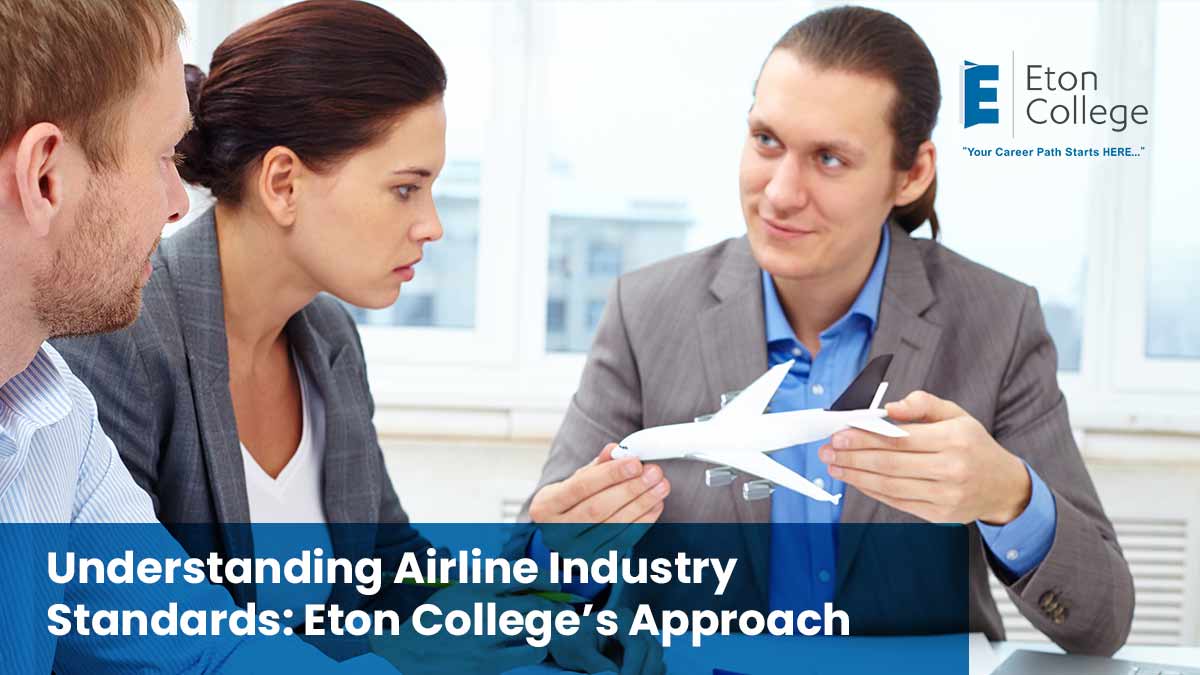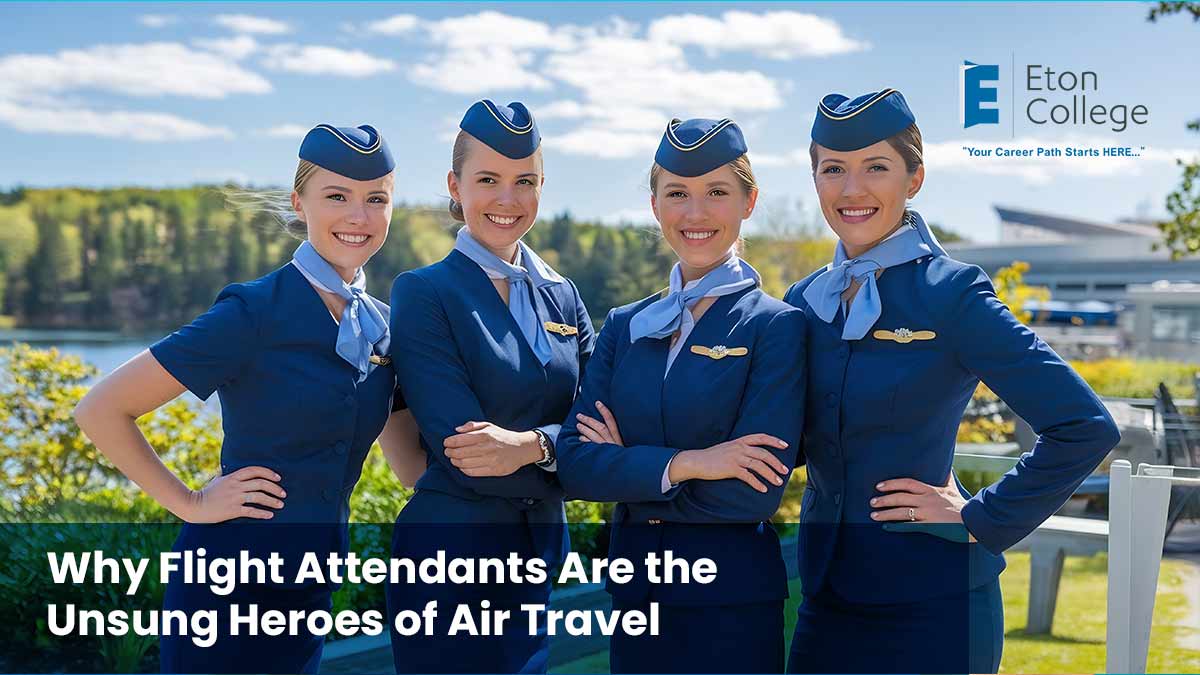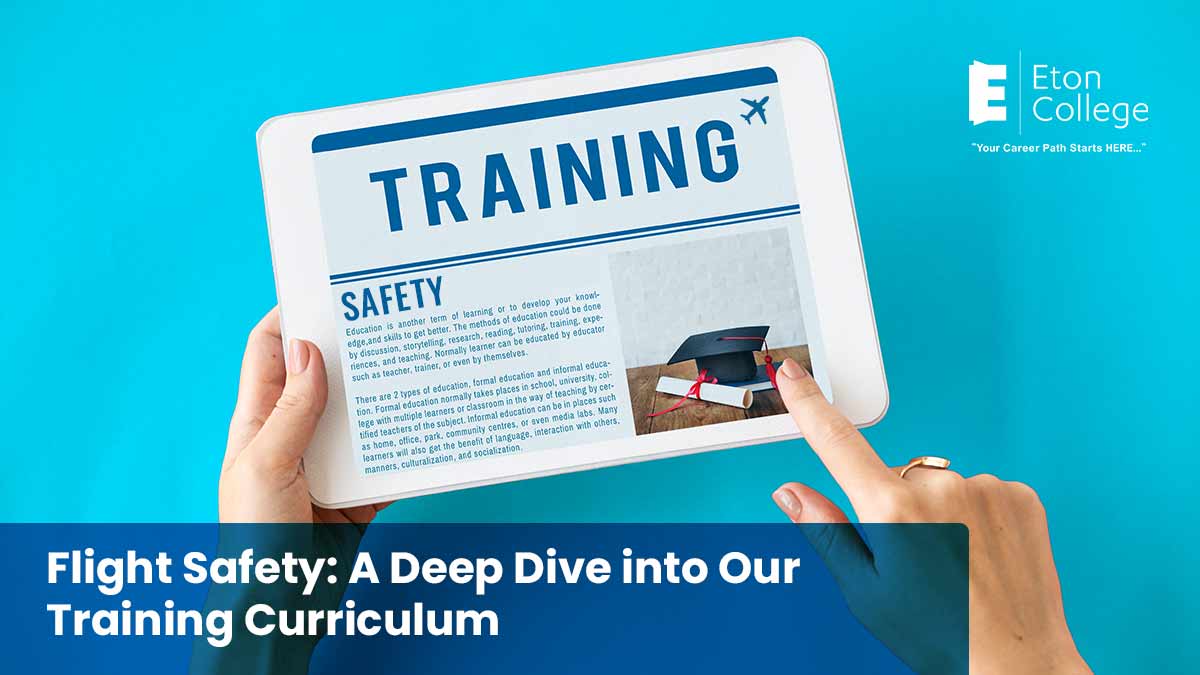Key Takeaways:
- Simplify Standards: Eton College de-mystifies airline industry standards, whereby the students easily respond to the most fundamental regulations.
- Mtic claimed to give holistic training with sound training on flight safety, service protocol, and industry compliance.
- Real-Life Application: Appreciate how to implement airline policies through training for the simulation lessons.
- Career Readiness Skills: Explain how the development of airline standards prepares students for broader careers in aviation.
- Airline Standards FAQs: Airline Standards Frequently Asked Questions on Airline Training, Certification, and Professional Standards.
Industry standards are critical in the aviation sector. For instance, flight attendant regulations ensure not only security in the transport of passengers or personnel but also the credit that is given to airliners and the efficiency with which airlines operate. At Eton College, our course makes all these complex standards simple, thus enabling graduates to confidently operate within the aviation industry.
Airline industry standards are more than rules and regulations and rather it is a culture of safety, service, and efficiency that makes the entire aviation system run seamlessly. At Eton College, such trends are followed to ensure that the most current knowledge and skills are provided for any student’s future.
General Areas of Airline Standards Training
The aims of the Eton College airline industry standards training program are to provide an overview, covering the most significant topics.
- Flight Safety Protocols. Learn how to perform essential pre-solo checks, emergency procedures in cruising level, and security measures.
- Service Regulations. Know how consistency is a prime point in offering quality customer service that’s on par with airline policies.
- Emergency Response Compliance. Learn procedures to handle surprise scenarios, including medical emergencies, evacuations, and other unexpected scenarios.
This holistic strategy makes sure that students are adequately prepared and geared for airlines’ and passengers’ expectations altogether.
Hands-on application of standards
Learning at Eton College goes beyond book knowledge. Instead, it is seen in living experience, actually bringing industry standards to life through:
- Simulation-based scenarios. they practice their inflight scenarios-from turbulence to a persnickety passenger.
- Interactive Exercises. Participation in safety and evacuation exercises is good for the development of fast, stress-disposition decision-making.
- Role-Playing Exercises. Develop communication skills and teamwork while reenacting cabin crew in real-life situations.
These practical exercises are bound to make the graduates learn the rules but also apply them in practical scenarios.
Simulations and drills aside, there is also student engagement in industry professional workshops. In such workshops, students learn valuable lessons far beyond the school doors by associating real life with problems cabin crew are likely to face. Pragmatic advice and insider information on success in their various functions flow between interactions that students experience with professionals, long experienced.
Relevance of Airline Standards Worldwide
Therefore, since the aviation industry is global and international, learning about international regulations becomes essential knowledge for professionals. Being prepared as flexible in different operation environments, Eton College taught:
- International Safety Protocols. Understand global compliance standards to work with any airline around the world.
- Sensitivity towards Culture. Learn to work amidst the cultural diversities yet maintain industrial standards respecting local customs and traditions.
This knowledge of universal standards enables the students to adjust with better effectiveness towards various airline rules and practices. Some airlines have peculiar service protocols or even regional safety rules aligned to their respective region operations. Eton College gives a student with sufficient confidence to take on any kind of aviation role.
Mastery of these international standards serves Eton College graduates well as they strive for successful careers in this networked aviation industry.
The role of industry standards in passenger experience
The airline industry standards make travel into and out of the flying machine safe and enjoyable. Some of the standards include:
- Passenger Safety. This makes sure that passengers comply by establishing minimum protocols during flight operations.
- Customer Trust Enhancement. It describes the commitment of airlines toward professionalism and care.
- Maintain Operational Efficiency. Streamline and make processes efficient for flight and service provisioning.
The face of an airline for passengers while traveling is often the flight attendant. Keeping up with high standards in the industry while providing impeccable service goes a long way in contributing to a passenger’s perception of an airline as a whole. A well-trained cabin crew makes traveling more pleasant and tends to create customer loyalty-an essential asset for any airline competing in this global market.
It is the observance of these standards by wise flight attendants that is key to the integrity of the airline.
FAQs on Standards and Training in Airlines
- Why are airline industry standards important?
They help to maintain passenger safety, efficient operation, and continuous service quality to build trust in the aviation industry.
- What are the topics involved in airline industry standards training?
Training encompasses safety procedures, service policies, emergency responses, and cultural awareness.
- How does hands-on training benefit students?
It fills that gap between theory and practice, instills confidence, and helps one to acquire actual skills.
- Are international flight attendant regulations included in the course?
Indeed, Eton College lays great emphasis on global compliance ahead of its international aerodynamics careers.
- What career may be awaiting after taking this course?
Graduates can be flight attendants, and ground operations staff besides becoming airline management professionals.
- How does Eton ensure students are career-ready upon leaving the institution?
Eton College merges theory-based learning with experience and career services support. They assist students from building up to presenting a resume, through mock interviews, preparing them to enter their aviation careers with confidence.
Eton College: Excellence Above Standards
Anyone who dreamt of succeeding in the industry had to master flight attendant regulations and have a comprehensive knowledge of the standards related to the airline industry. At Eton College, we make it simple, engaging, and impactful. Our program is very inclusive, offering practical applications on global readiness for students to be armed with the challenges that come with this dynamic industry. Take the first flight into your aviation career by coming to Eton College, where skills and confidence for flying high are learned.




